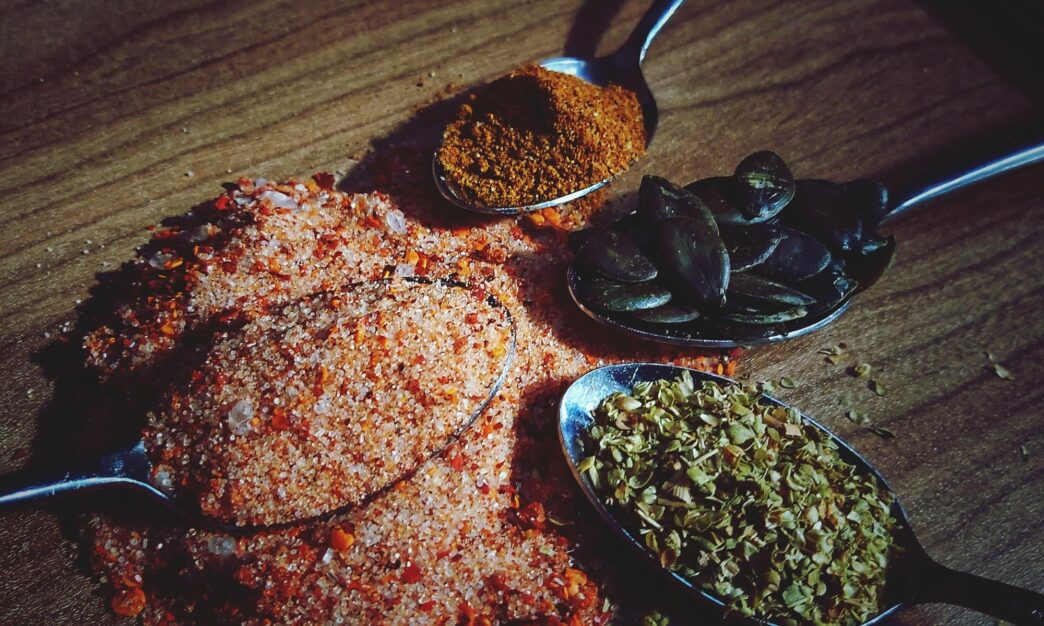A Quick Takeaway
The Story Behind the Trend
How to Make It Work for You
The Community View
Dukkah, an aromatic and textural Egyptian nut, seed, and spice blend, offers an unparalleled way to elevate everyday meals with both incredible flavor and significant nutritional benefits. For anyone looking to infuse their diet with wholesome ingredients and exotic tastes, crafting your own homemade dukkah is a simple, rewarding endeavor that puts you in complete control of the quality and freshness of this versatile condiment. This unique mixture, traditionally served with bread and olive oil, can transform a simple snack into a gourmet experience, making it an essential pantry staple for the health-conscious home cook.
What is Dukkah?
Hailing from Egypt, dukkah is a dry blend of toasted nuts, seeds, and spices, coarsely ground to retain a delightful crunch. Its name, derived from the Arabic word ‘to crush’ or ‘to pound,’ perfectly describes its preparation method. The resulting mixture boasts a complex flavor profile that is nutty, earthy, warm, and subtly spicy, making it incredibly versatile in the kitchen.
While specific recipes vary regionally and by family, common ingredients include hazelnuts, sesame seeds, coriander seeds, and cumin seeds. These components are typically toasted to enhance their natural aromas before being ground together with salt and pepper. The beauty of dukkah lies in its simplicity and the depth of flavor it provides.
Why Make Dukkah at Home?
Creating dukkah in your own kitchen offers several compelling advantages over store-bought versions. Foremost among these is the superior freshness and intensity of flavor that comes from using recently toasted and ground ingredients. The aromatic oils in nuts, seeds, and spices are most potent shortly after preparation, providing a vibrant taste that pre-packaged alternatives often lack.
Homemade dukkah also grants you complete control over the quality and type of ingredients, allowing for organic choices, specific nut preferences, or avoidance of allergens. Furthermore, it can be more cost-effective in the long run, and the ability to customize the spice levels and nut combinations means you can tailor it perfectly to your palate. This culinary autonomy ensures your dukkah is not only delicious but also perfectly aligned with your dietary needs.
The Health Benefits of Dukkah
Beyond its incredible taste, dukkah is a powerhouse of nutrition, thanks to its wholesome ingredients. Nuts and seeds are excellent sources of healthy monounsaturated and polyunsaturated fats, which are crucial for heart health and can help reduce bad cholesterol levels. They also provide a significant amount of plant-based protein, essential for muscle repair and satiety.
Fiber is another key component, aiding digestion, promoting gut health, and helping to stabilize blood sugar levels. The spices commonly found in dukkah, such as coriander and cumin, are rich in antioxidants and possess anti-inflammatory properties. These compounds contribute to overall well-being, supporting the immune system and protecting cells from oxidative damage, making dukkah a truly functional food.
Essential Ingredients for Classic Dukkah
To craft a traditional Egyptian dukkah, a few core ingredients form the backbone of its flavor and texture. Hazelnuts are often the star nut, providing a rich, buttery depth, though almonds or pistachios are also common choices. For seeds, sesame seeds contribute a delicate nuttiness, while coriander seeds offer a citrusy, earthy note, and cumin seeds provide warmth and depth.
Beyond these, black peppercorns add a gentle kick, and a good quality sea salt is essential to balance and enhance all the flavors. While these form the classic base, the beauty of homemade dukkah is its adaptability, allowing for personal touches and variations.
Crafting Your Own Dukkah: A Step-by-Step Guide
Making dukkah at home is a straightforward process that yields incredibly rewarding results. Begin by toasting your nuts and seeds separately in a dry pan over medium heat until fragrant and lightly browned. This step is crucial for deepening their flavor; watch them carefully to prevent burning, as burnt nuts and seeds can impart a bitter taste.
Once toasted, allow them to cool completely. Next, lightly toast your whole spices, such as coriander and cumin seeds, until aromatic. Grind the toasted spices in a spice grinder or mortar and pestle until they are coarsely crushed, not a fine powder. Combine the cooled nuts, seeds, and ground spices with salt and pepper in a food processor or a large mortar. Pulse or pound until the mixture is coarsely ground, retaining some texture and crunch. Avoid over-processing, as you don’t want a paste.
Beyond the Classic: Customizing Your Dukkah
While the traditional recipe is excellent, feel free to experiment and create your signature blend. You can swap hazelnuts for other nuts like walnuts, pecans, or even cashews to alter the flavor profile. Incorporating different seeds such as pumpkin seeds, sunflower seeds, or fennel seeds can add new dimensions of texture and taste.
Spice variations are endless; consider adding a pinch of smoked paprika for warmth, sumac for a tangy zest, or dried mint for freshness. For a unique twist, some enjoy a touch of chili flakes for heat or even a hint of sugar for a sweet-savory version. Customization allows you to tailor dukkah to complement specific dishes or simply your personal preferences.
Delicious Ways to Enjoy Dukkah
The versatility of dukkah makes it a fantastic addition to countless meals. The most traditional way to enjoy it is by dipping crusty bread first into olive oil, then into the dukkah, allowing the blend to cling to the oil-soaked bread for a delightful bite. It makes for an impressive and simple appetizer.
Beyond this, sprinkle dukkah generously over roasted vegetables like carrots, cauliflower, or sweet potatoes for an extra layer of flavor and crunch. It’s also superb over salads, scrambled eggs, or avocado toast. Use it as a dry rub or coating for fish, chicken, or lamb before roasting or grilling. Even a dollop of Greek yogurt can be transformed into a savory snack with a sprinkle of dukkah and a drizzle of olive oil, showcasing its endless culinary possibilities.







